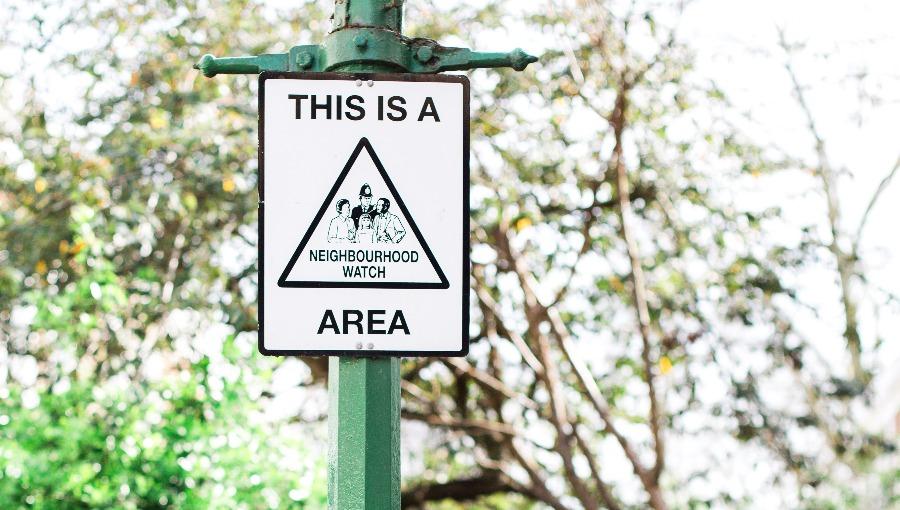Craig Johnson
Do Dating Apps Even Try to Verify Their Users' Backgrounds?
What the big services in the dating scene do to discourage abuse and how you can protect yourself.

We all accept that there is going to be some . . . let's say "finessing" of the truth in the dating scene. How we date has changed drastically in the digital age, but that people exaggerate their good qualities is nothing new. White lies are common, even acceptable.
It's almost rude if people don't bother to "polish their resume" when meeting you. It shows a lack of effort, a dearth of creativity. We don't expect the naked truth up front—where's the fun in that? After all, dating is about meeting people and then getting to know them.
What is troubling is how few people on popular dating apps are actually people.
Estimates say that bots account for as much as two-thirds of traffic on dating sites. Have you ever wondered how the brand-new dating app you just heard about can boast a few million members already? The day these services launch, they fill up with bots. And the owners of the app are OK with that.
Search Anyone FreeThe inflated membership numbers look good for the company and attract new customers, so there is little incentive to kick out the bots. The owners of Match.com were sued in 2019 by the Federal Trade Commission for boosting their subscriptions via fake profiles and phony love matches. As a result, the major dating service has ramped up user verification.
Since the fastest way a dating app can grab a slice of market share is by giving away memberships, the easiest ID check these companies could employ is not available to them: matching usernames to the name on a credit card. There are no credit cards with free memberships.
Online dating services gladly trade a free account today for the chance to upsell you tomorrow (and the next day, and the next day). Although free, frictionless signups are the best way for a dating service to survive and grow, this business practice leaves the door open for scammers to generate a thousand fake accounts a day with details and photos scraped from the internet. And the more popular online dating becomes, the more attractive a hunting ground it makes for criminals.
Real-Name User Policies Are a Good Start
Dating services draw a lot of eyeballs and therefore are attractive to advertisers. People respond to every notification from their dating apps as well, and every one of those "You have a new match" or "Someone looked at your profile" alerts can be accompanied by another ad. So it's no wonder that Facebook got into the dating scene.
One of the immediate advantages Facebook Dating has over competitors like Bumble and Tinder is that the social network has long enforced a real name policy. This greatly increases the chance of matching with an actual person.
When you know someone's name, you can easily run your own background check on services such as PeopleWhiz. Being more secure when using dating apps, therefore, is a two-prong approach. First, insist on knowing someone's real name even if the app does not require it up front. Second, run the name through PeopleWhiz.
Until 2019, Tinder's method of verifying identities was to require users to link their Facebook account. Now Tinder gives anyone the option to use a phone number instead. Given the availability of burner phones and instant virtual numbers, this option has flung the door open to fake profiles. Alarmingly, Tinder lets free accounts use the messaging system too.
It's best to use a dating service that makes a serious attempt to weed out criminals and bots even at the cost of lowering its membership number.
eHarmony tries to verify identities as well, but the system is far from foolproof. Scammers can't resist trying to infiltrate this huge dating service, where members have big wallets (eHarmony is among the most expensive dating services). The battle against scammers and bots is never-ending. The policy presumably forbids faceless profiles, but some profiles have no pictures, suggesting that there is wiggle room in eHarmony's attempts to quash fakes. The company's safety guidelines repeatedly put the onus on you, finding various sensible ways to say, basically, "Distrust everyone here until proven otherwise."
Bumble also makes a weak attempt at verifying profiles. A real name is required by its terms of service, but compliance is on the honor system. "Bumble has no way of checking your real name," says dating advice hub Boost Matches. "You can even verify your profile on Bumble with the fake name and get the nice blue checkmark on your Bumble profile."
One of the most effective ways that Match.com tries to protect users from fraud is to allow only paid members to use the messaging system. Scammers are less likely to reach out for victims if they have to pay for it; these jerks are all about picking low-hanging fruit.

Tips for Spotting Fake Dating Profiles
When we take selfies, we look at the camera. It's just a fact. So if a dating profile photo is a person not looking at the camera (see above), forget it.
The only plausible explanation is, "My friend took that picture of me while I wasn't paying attention." How believable is it for an attractive woman today not to have a selfie she likes and instead she has to ask friends if they ever caught her in one of their pictures by accident?
A profile photo of someone who doesn't appear to know that he or she is being photographed is a flag so red we hardly have to mention it.
Here are four more tips to spot a fake dating profile.
- The photo is too good. If you turn to a friend and say, "Wow, she looks like a model!" she probably is. She's probably an innocent model for stock photos or an online retailer and has no idea her image was stolen for that fake profile.
- She is immediately very into you. The app says you have a match, and within seconds of your confirming it, she messages you. This, my friend, means you are dealing with a conman with a quota, not a lady who's hot to trot.
- They want to move the chat away from the app. Scammers want to find you on the app but groom you on text or phone. Beware anyone who says it would somehow be easier to move your conversation out of the app. Never give out your email address or phone number until you've met in person.
- They are out of town right now. You suggest meeting for coffee, but he's on a business trip. Or, a video call could be fun, you say, but darn it, she's working in a poor country with low bandwidth. Scammers want to stay invisible, so they have a string of excuses ready for why you can't see them. No real person with that many excuses for staying invisible and unavailable would be on a dating app in the first place.
Conclusion
The safest approach to online dating is twofold. For a start, it's best to use a service that makes a serious attempt to weed out criminals and bots even at the cost of lowering its membership number. Big players like Tinder and Match.com (both owned by Match Group), eHarmony, and Facebook Dating can shed a few hundred thousand accounts and still boast healthy memberships.
Next, insist on knowing someone's name, because then you can simply enter it into PeopleWhiz to look for criminal records and other alarming facts. And if there are no background details for the name you were given, it might be a fake name.
Background Search Anyone FREE



